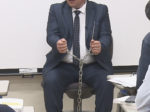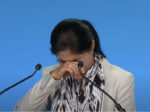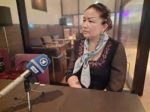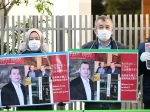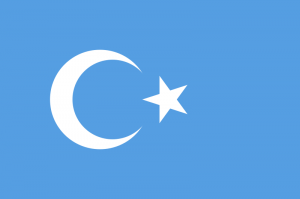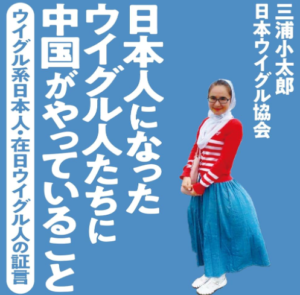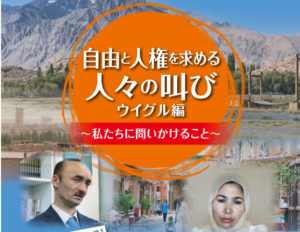Courage born of despair: Uighurs in Japan
- 2019/7/22
- English
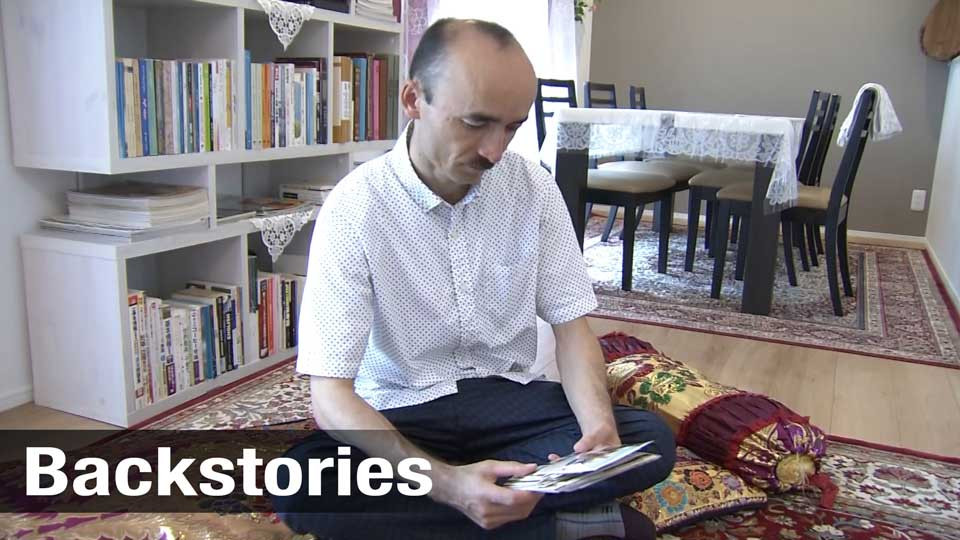
NHK WORLD – JAPAN, Monday July 22, 2019
Thousands of Uighur Muslims living in China’s Xinjiang Autonomous Region are being held against their will in what the Chinese government calls vocational training centers.
A Uighur man living in Japan who had kept silent till now, fearing for the safety of his family back home, says he is now raising his voice because of the hopelessness felt by the Uighur people.
Families taken away
“Return our families! Free the Uighurs!”
These were the slogans shouted by Uighur Muslims in Japan, protesting on July 5th outside the Chinese Embassy in Tokyo.
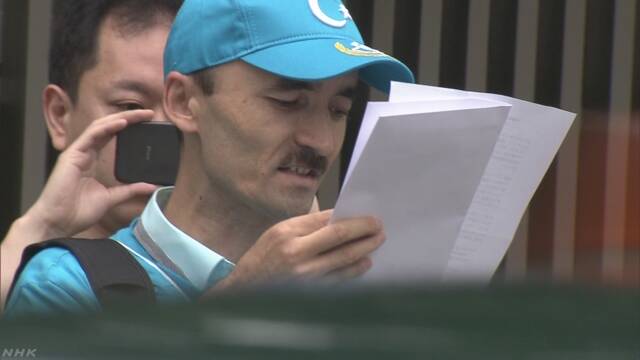
Afmetto Retepu protests on July 5th in front of the Chinese Embassy in Tokyo.
On that same day 10 years earlier, China had launched its crackdown on Uighurs protests against government. The Muslim minority was increasingly frustrated with Beijing’s policy on religion and the widening economic disparity with the Han Chinese majority.
China’s government says its re-education camps are serving to combat Muslim terrorism, while providing vocational training and education in Chinese. But Uighurs dispute that claim.
A Uighur in Japan speaks up
Afumetto Retepu attended the rally in Tokyo. He came to Japan 17 years ago and now works at an IT firm. He has been granted Japanese citizenship.
He took part in a similar protest in Tokyo 10 years ago. He has remained in Japan to avoid detention and had hoped to prevent repercussions on his family.
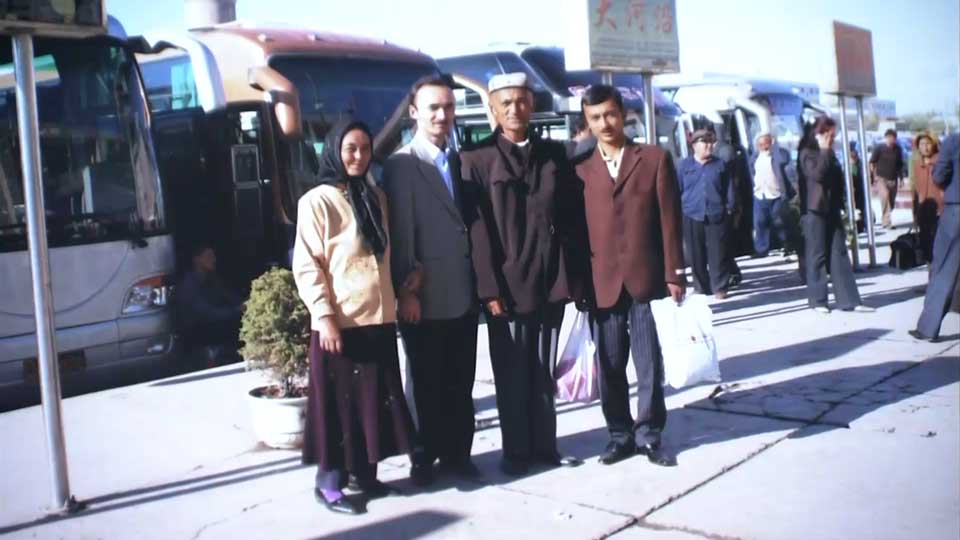
Afmetto’s family in 2005.
Back home, his father, Letip Abudurahman, turns 70 this year. Afumetto suddenly lost contact with the family two years ago, but was able to reconnect with his mother in February last year.
“Your father and brother are now out studying,” she told him. “It will be a while before they return.”
Choosing her words carefully, his mother tearfully revealed that his father and brother were in a so-called vocational training center. After this conversation, Afumetto lost contact again. He has since learned that 10 other relatives are being held in a retraining camp.
Father’s changed demeanor
Four months later, Afumetto agreed to an interview with NHK on condition that his face not be shown.
After the interview, he showed me a video message from his father. He noted that his father was no longer wearing the traditional Uighur cap, and that he was shorn of the beard normally worn by elderly men of the Muslim faith.
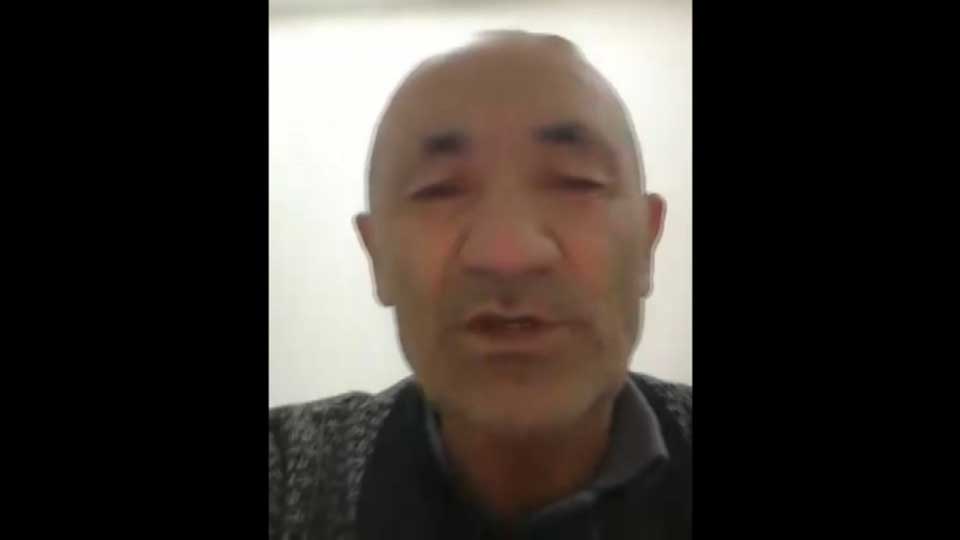
Afmetto’s father appeared in a video message sent by someone claiming to be working with the Chinese authorities.
“I’m working hard at a facility. I’m in good health. You must put priority on the interests of China and be ready to cooperate, to put the family at ease.”
The father was appealing to his son to cooperate with Chinese authorities. Afumetto said it shocked him to see his father talking this way.
“That’s not the father I know. He’s become a different person. There’s no life in his eyes. My father is not the type of person who would talk this way. They’re forcing him to say this.”
The father’s video message was sent by someone claiming to be working with the Chinese authorities.
Feeling hopeless after seeing his father
Afumetto stayed in contact with this individual, demanding the release of his father and brother. A couple of months later, in April 2018, the man sent him another message.
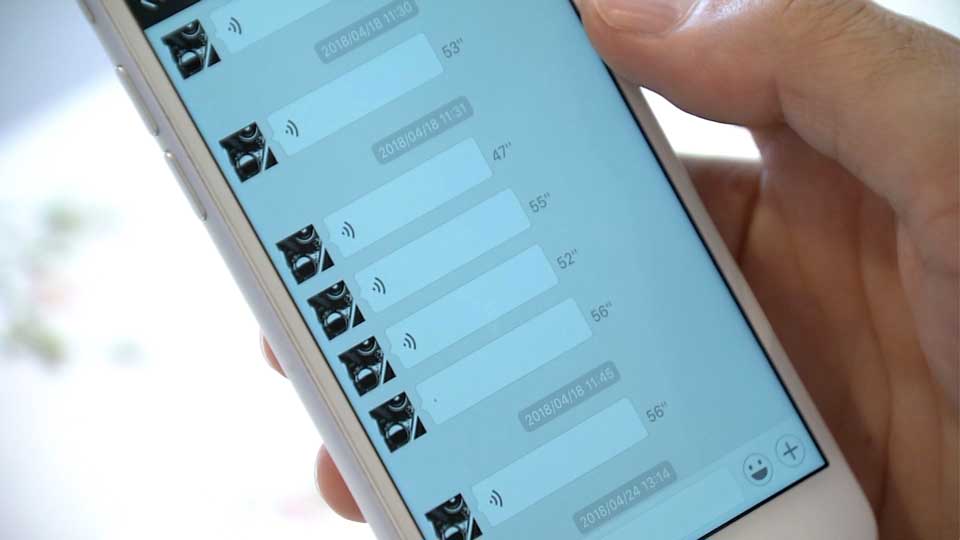
Voice message sent in April 2018 by someone claiming to be working with the Chinese authorities.
“You must be aware of situation of the Uighur organization in Japan, even if you aren’t directly involved in their activities. If you stand with our country and cooperate, and we are able to confirm your loyalty to the Chinese central government, your family problems will be resolved immediately. You understand what I want from you.”
Afumetto said he would not betray his comrades to rescue his family, but he worried about what would happen to his father, and that made him feel hopeless.
An agonizing decision
Afumetto said he had many sleepless nights, crying and agonizing day after day about what to do. He said he finally came to a decision after 2 months.
“Please don’t contact me anymore,” he told the man. “I leave my family’s fate to Allah.”
Afumetto said he realized that there was no guarantee Chinese authorities would release his family, even if he complied with their demands. If anything, he said, it made him feel more determined never to bend to unjust pressure from the Chinese government, but he also decided not to go public at that time. Then, seeing the increasing criticism of China in the international community, he said he felt a glimmer of hope that the detainees might eventually be released.
China presses on with “justification”
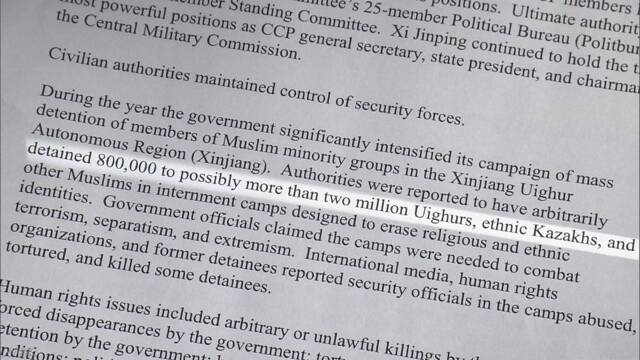
US State Department human rights report.
The international monitoring group, Human Rights Watch, has said the violations against the Uighur minority in China are of a scope and scale not seen in the country since the Cultural Revolution.
The US State Department has also said that Chinese authorities were reported to have arbitrarily detained 800,000 to possibly more than two million Uighurs and other Muslims in internment camps designed to erase religious and ethnic identities.
Chinese authorities strongly deny these allegations. They insist that their facilities are providing job training for Uighurs who have been influenced by radical ideologies. They even opened one of the facilities to foreign media, hoping to show that the policy was justified.
Courage born of despair
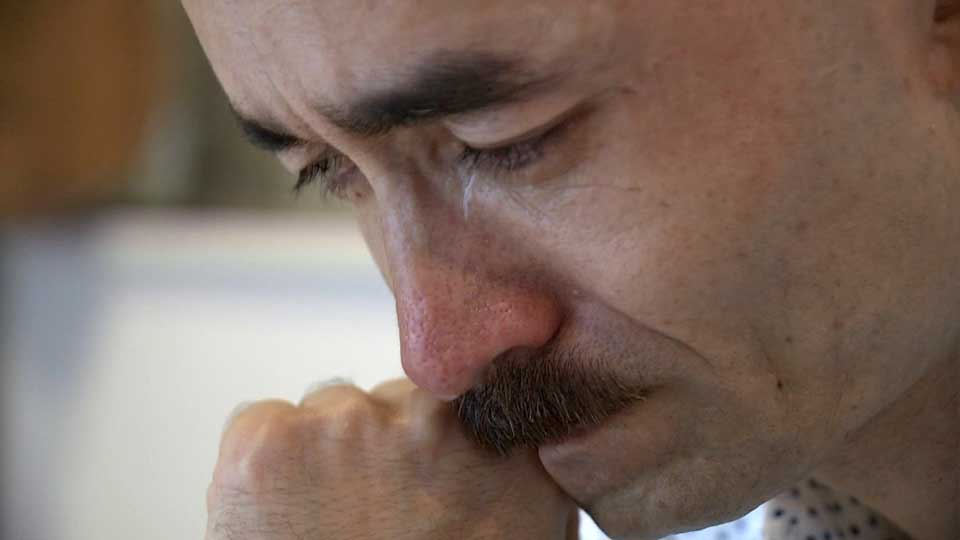
Feeling an increased sense of crisis that Beijing’s claims of fighting terrorism might be accepted, Afumetto said he decided in June to tell his story, and reveal that Chinese authorities had pressured him to spy on Uighurs protesting in Japan.
“It will soon be the third year that I’ve had no news of my family. They may face more severe treatment if I speak out, but there’s no longer any use worrying about that,” said Afumetto. “The people who are forcibly detained in the camps can’t get their voices heard, no matter how desperately they may hope. That’s why I want the world to know what is actually happening in China,” he said. “I have the courage born of despair.”
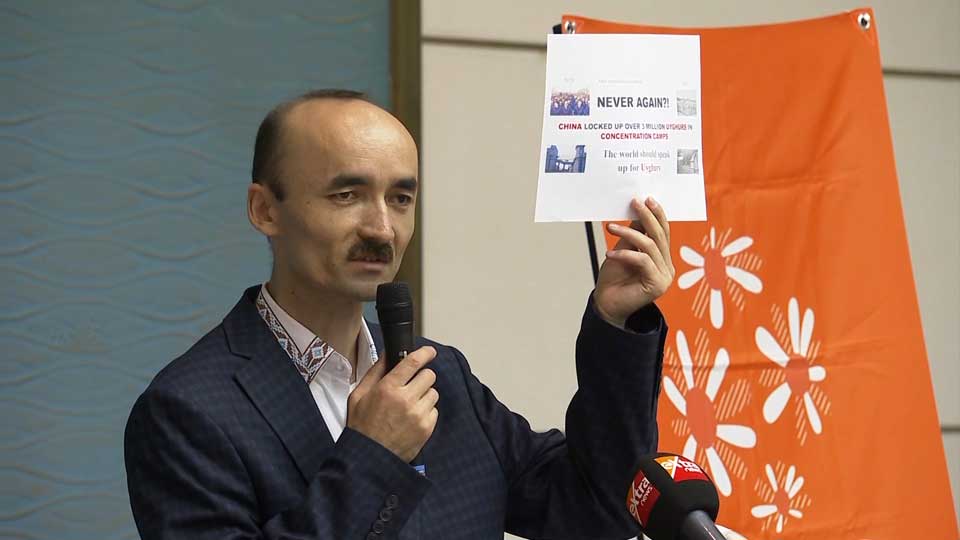
Afumetto at the venue of the G20 summit in Osaka.
In June, Afumetto took part in a news conference on the issue, held at the venue of the G20 summit in Osaka.
“In China, a country very close to Japan, the worst displacement in human history is taking place,” he said. “Please do not remain silent about this situation.”
Continuing to show the harsh reality
In the towns and cities of the Xinjiang Uyghur Autonomous Region today, the streets appear quiet, but on closer inspection, you see surveillance cameras here and there and policemen with sharp eyes watching every move.
Afumetto has no information about the fate of his family, and he is not the only Uighur in Japan who has been pressured to cooperate with Chinese authorities. These others also have lost contact with their families.
Afumetto’s “courage born of despair” shines a light on the harsh reality of Uighurs living in Japan.
I will continue to report on their plight, hoping that the day of their reunion with their families comes soon.
https://www3.nhk.or.jp/nhkworld/en/news/backstories/616/


